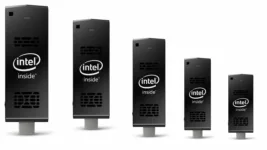If you are moving from one house to another, or have electronic devices that are not in use in your house and are just eating into your space, you may want to store them elsewhere. An ideal place to keep them safe is a storage unit nearby. When finding a storage facility for electronics, security is your first priority. But even then, since electronic items cost so much, it is critical that you find ways to protect them against any kind of lasting damage while in storage units. To do this, you need to understand a few basics about keeping electronics same during storage. Here are some useful tips to help you keep electronics safe in storage units as featured on msnbc news live:
1. Lease a storage unit that has climate control
Electronic products like printers, computers and mobile phones need to be stored in conducive temperatures to avoid interference with their longevity. As such, opt for a storage unit that is fitted with climate control to ensure that your electronics are not damaged by high or low temperatures. For instance, if you are storing a printer in your unit, you’ll need to heat it during winter because cold temperatures can freeze the ink and any other fluids in the printer, causing it to expand. On the other hand, in the event that a printer is stored in a room that isn’t cool or at least in room temperature during summer, it will condense, get moisture damage and rust.
2. Pack electronics in your storage unit correctly
Using the right packing for your electronics protects them against dust and also prolongs their life. If you are storing electronics like mobile phones, computers or music systems, cover them with bubble wraps before putting them in the storage unit. The bubble wrap serves as shock absorber and protects the electronic items from damage. Also, use a canvas or cotton sheets to cover the electronics so that dust does not accumulate on them but allow air circulation. Avoid wrapping electronics in plastic bags for a long time because it traps moisture which fosters growth of mildew and mold. Be sure to label storage boxes depending on the electronic item kept in it.
3. Insure costly items
If you are storing costly electronics like computers, phones or printers, you are better off insuring them to ensure that in case they get damaged or get stolen, you will be able to get compensation. Of course most storage facilities are fitted with good security systems and measures put in place to ensure the security of your items. Usually, the storage facilities may easily be held accountable for losses resulting from burglary and theft. However, with damages that result from natural occurrences like extreme weather conditions, floods and fires, it may be very difficult to hold them accountable. To get compensation for losses and damages that result from such occurrences, consider insuring your costly electronics with a reputable insurance firm.








